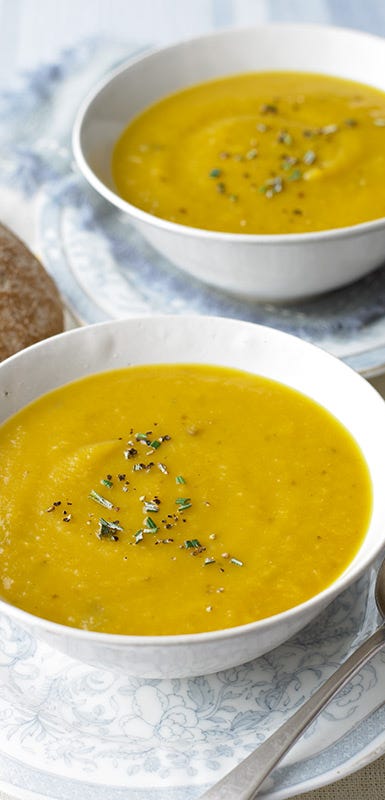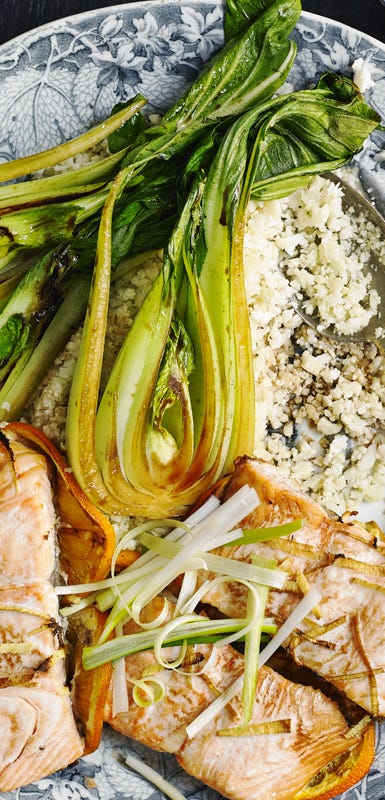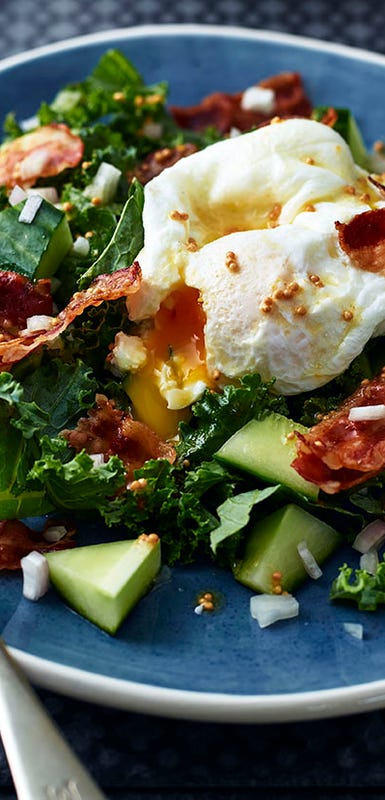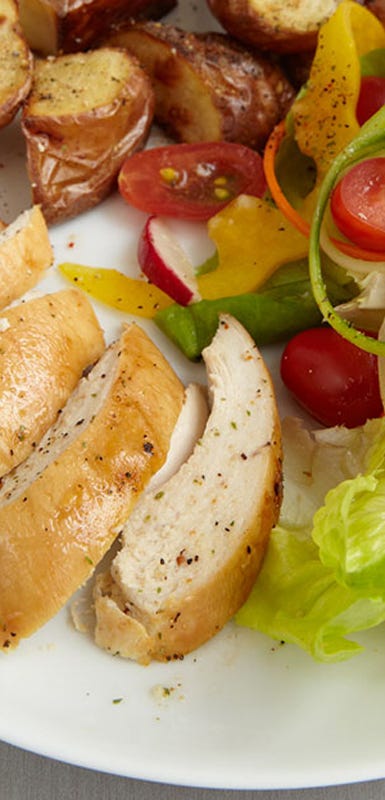Weight loss foods: can these foods help you lose weight?
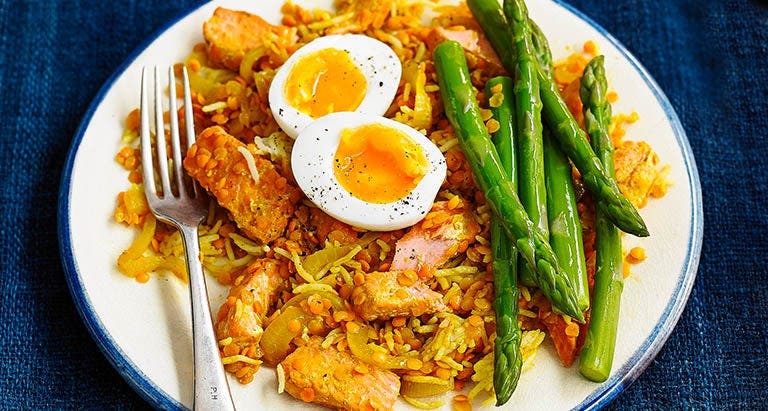
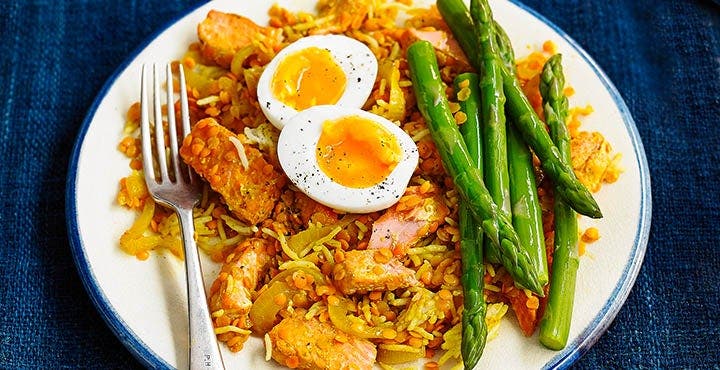
Weight loss foods: what's the story?
What’s the best way to lose weight? Unfortunately, there’s no quick fix when it comes to weight loss.
At WW we inspire healthy habits not just for life, but for real life. We don’t only want you to lose weight; we want to inspire a holistic transformation that improves your diet, activity, mood, motivation and overall wellbeing.
Did you know that eating healthily is scientifically proven to make us feel happier? This Australian study unearthed a relationship between increased fruit and vegetable intake and higher levels of life satisfaction, while this American study found that eating more fruit and vegetables improved psychological wellbeing, including motivation, curiosity, creativity, and energy.
Not only that, but eating well also makes you feel better about yourself – proud, driven and in control of your food choices (and ultimately, your wellness).
Healthy heroes - what to eat
With that in mind, here’s a list of foods to focus on. Not only will they help you towards your weight loss goals but they'll also help you feel good too!
ZeroPoint™ foods
Personalised, nutritious eats you can always turn to - no tracking, no measuring, no hunger. What qualifies these foods as having a Points® value of zero? Firstly, they help form the foundation of a healthy eating pattern. What’s more, they’re much less likely to be overeaten – it’s much harder to eat six apples than six biscuits!
Fibre is your friend
Fibre helps you feel full, which is the perfect way to lose weight. How does it do this? Fibre slows down the emptying of the stomach, increases digestion time and affects the release of satiety hormones – all of which are linked to increased sensations of fullness. You can find fibre in plant-based foods, such as oats, wholegrain bread, brown rice and pasta, fruit and veg, and beans, peas and lentils.
RELATED: 8 foods that will fill you up
Eggs aren’t the enemy
Eggs are a great go-to for a healthy breakfast, lunch or dinner. They’re high in protein, nutrients and healthy fats, low in calories and keep you feeling fuller for longer. One study showed that choosing eggs for breakfast over bagels increased feelings of satiety and led to participants eating less over the next 36 hours!
RELATED: 6 easy egg recipes for breakfast, lunch or dinner
Lovely leafy greens
Leafy greens like spinach, kale and swiss chards are low in calories and carbohydrates and high in fibre. Piling your plate with lovely leaves is a great way to add volume to your meals, without the calories.
Super salmon
Loaded with healthy fat, high quality protein and omega-3 fatty acids which could help prevent obesity and type 2 diabetes, salmon is healthy, filling, satisfying and a great weight loss food. Team with leafy greens and a poached egg for a nutrient-packed dinner. Tuna is another low calorie, high protein fishy food – just remember to choose canned tuna in water rather than oil.
Brilliant boiled potatoes
First it was eggs, which were wrongly convicted of raising cholesterol. Then it was potatoes, which were blamed for weight gain. Both theories have been overturned. Eggs are one of our favourite go-to foods at WW, while potatoes not only contain a diverse range of nutrients, but also score the highest of all foods tested on the Satiety Index – meaning they make you feel full and curb appetite. Choose to eat your potatoes baked or boiled, with their skins on, to maximise the fibre content.
Warming soups and broths
Numerous studies have shown that eating the exact same food as a soup rather than solid food makes people feel fuller – and consume significantly fewer calories as a result. This is primarily because soups and broths have a high water content, which means they fill your stomach yet provide few calories. Try bean soups for a high protein and high fibre meal.
With almost double the protein content of regular yogurt, Greek yogurt makes a great breakfast or snack. Top with fresh fruits and oats for added fibre and nutrients. Check out our article on the best fat-free yogurts.
Amazing apples
While fruit contains natural sugar, it has a low energy density, and the fibre content prevents the sugar from being released into your bloodstream too quickly. Apples are particularly high in fibre, with a medium-sized apple containing up to 20% of the recommended daily intake. Apples also take a while to chew, which makes you eat more slowly. This increases the feeling of fullness and staves off 'hunger pangs' which may help prevent overeating.
One of the best sources of fibre on the planet, chia seeds are incredibly nutritious, not to mention quick and easy to incorporate into a healthy breakfast or snack. Chia seeds can also absorb up to 12 times their weight in water, which means they expand in your stomach, making you feel full. Why not try our dairy free chocolate chip and chia seed pancakes?
Nutty about nuts
Nuts are a great source of protein and healthy fats. A small handful makes the perfect snack when you have an attack of the munchies, however, it’s important not to go overboard. Despite being extremely nutritious, nuts are high in calories and really easy to overeat.
Wonderful water
This one’s a bit of a cheat, but hunger is often confused with thirst. If you start to feel hungry, try drinking a glass of water or a glass of low-calorie squash (with no added sugar) first. Or, try diluting fruit juice with water, remembering to count the points. This healthy habit could save you hundreds of calories a week!
Mindful eating
Mindful eating can also help on your weight loss journey. Sit down to eat, and really savour the texture and flavours of your food. This will encourage you to appreciate and enjoy each mouthful, and help you eat more slowly.
Why is this important? It can take up to 20 minutes after food is first eaten for the full range of satiety signals to reach the brain. Eating too quickly can lead to overeating, because you might not recognise how full you are until it’s too late!
Mindfulness can also boost mood, and has the potential to reduce negative thoughts and feelings associated with overeating. Being mindful may also improve resilience to help deal with hunger pangs, and could ultimately shift your mindset towards a healthier lifestyle.
Check out the articles below to delve deeper into mindfulness, and how it could help you develop healthy habits for real life.

